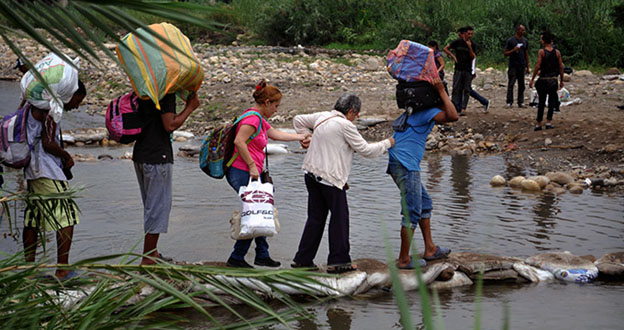Forcibly displaced people in Latin America and the Caribbean can contribute significantly to the economies where they live if they have the opportunity, according to two new studies undertaken by the World Bank (WB), the Organization for Economic Cooperation and Development (OECD), and the United Nations High Commission for Refugees (UNHCR).
The studies indicate that refugees and migrants are filling important gaps in local labour markets and boosting the demand for goods and services which may increase tax revenues and raise the Gross Domestic Product (GDP) of receiving countries. However, displaced people frequently find themselves in vulnerable situations linked to the fact that they live away from home. One common problem, the studies suggest, is that while displaced people of working age may have a high level of education and may even be in some form of employment, they are frequently overqualified for their jobs and engaged in informal activities, limiting their wages, and exacerbating their food insecurity.
Two recent studies titled, “Venezuelans in Chile, Colombia, Ecuador and Peru – A Development Opportunity” (WB and UNHCR) and “Socio-Economic Integra-tion of Forcibly Displaced Populations in Latin America and the Caribbean” (IDB, OECD, and UNHCR), are cited as examples of inter-agency cooperation that seeks to respond to the needs of forcibly displaced people. These two studies (which the Stabroek Business has not seen) reportedly highlight ways in which “targeted policies” can “ease access to formal labour markets and basic services, such as education and healthcare, to enable refugees and migrants to better contribute to their host countries.”
Yet another study, “Population movements can benefit host communities and countries if the right policies are implemented,” authored by Caroline Mejia Mantilla and published by the World Bank and UNHCR, assert that “targeted policies that promote the economic inclusion of forced migrants into the labour market and grant them access to basic services and foster their social inclusion” are critical to shaping the quality of their lives.
A World Bank/UNCHR report on Venezuelan migration asserts that “the Venezuelan exodus appears to have had a positive effect on economic growth in the region, thanks to additional labour supply and the boost to demand,” reports the World Bank-UNHCR study. Statistics generated by the UNHCR assert that as of 2023 there were 22.1 million displaced people in the Americas and that Latin America and the Caribbean accounted for approximately one third of all new individual asylum applications globally. This study reportedly encompasses forcibly displaced populations in Chile, Colombia, Costa Rica, Ecuador, Mexico, and Peru.








